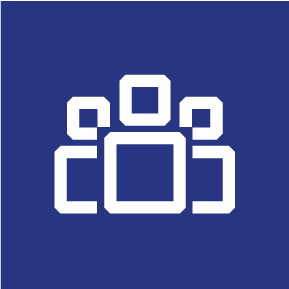Sun Life Takes Control of Workday Security, Updates & Expansion with Test Automation




75%
13
84k
9000
“Being a financial and benefits company, security is extremely important to us … [Kainos Smart is] extremely valuable for demonstrating that [Workday] controls are not only in place, but intact … It’s delivered a lot of value for us.”
About Sun Life Financial
Sun Life is a leading international financial services organization providing asset management, wealth, insurance and health solutions to individual and institutional clients. Headquartered in Toronto, Canada Sun Life has operations in a number of markets worldwide, including Canada, the United States, the United Kingdom, Ireland, Hong Kong, the Philippines, Japan, Indonesia, India, China, Australia, Singapore, Vietnam, Malaysia and Bermuda.
Consolidate. Streamline. Modernise.
Before Sun Life signed as Workday’s second Canadian customer in 2010, the company’s HR activity and records were dispersed across numerous siloed systems. Working with decades-old technology had become a poor user experience for staff. And making data-informed decisions proved increasingly challenging for teams—as information had to be collated from multiple sources.
"Our move to Workday was the beginning of an overall transformation for us,” says Sara Phillips, Director of Global HRMS Delivery at Sun Life. “Our need for a single system of record had grown, and we wanted a more comprehensive platform that would take on a much larger share of the work, provide a better end-user experience for our teams, and allow us to modernise, streamline effort, and consolidate our activity and data. And Workday delivered that.”
In May 2011, Sun Life went live with Workday HCM, Performance, and Compensation. By 2018, they’d doubled their Workday modules, rolling out Workday Time Tracking & Absence Management (TTAM) as well as Recruiting globally. As a result, Sun Life’s HR Services Group took on a heavier testing load, particularly during Workday’s bi-annual updates.
Sara explains, “Launching TTAM and Recruiting significantly increased testing requirements. Dozens of new test scenarios needed to be addressed. We needed our HR Services Group to do the bulk of the transactional testing. If anything looked like it was going to impact one of the programs, like the Performance Cycle or the Bonus Cycles, we would also have to bring in our Center of Expertise team to help test. So during updates, we were pulling in half of our most senior roles and having them spend 80% of their time on testing.
“It was stressful. Nobody loves regression testing. And as our use of Workday expanded, it was clear that relying on HR for testing would not be sustainable.”

The challenge: Risk increases around delivery, test coverage & security
The company felt that this widening gap between Workday growth and test coverage put the stability of their Workday configuration at risk. In addition, testing efforts posed challenges to their ability to deliver in other areas of the business.
“Although we were spending approximately 500 hours each update on testing and had nearly 2,000 manual test scenarios to hand,” says Sara, “we’d end up marking 60% or more of those tests as out of scope. And every time we descoped, we increased the risk.
“We also had to plan our other Workday roadmap items and external projects around the releases,” she continues, “which often meant losing momentum or putting work on hold. Adoption of newly released Workday features proved difficult, too. We’d try to fit new items in to the roadmap, but because of capacity issues, more often than not we’d have to add them to the backlog.”
Their lack of regression testing of their security configuration also caused concern.
“Being a financial and benefits company, security is extremely important to us,” says Sara. “We need a lot of rigour around internal controls and audits, but Workday security is complex. Couple that with the natural human error that comes with manual testing, and there’s a high risk of something getting missed or not being tested as thoroughly as it should be. Because we were early Workday adopters, there are also aspects of our security configuration that are not the way you would set it up now in a new implementation. For me that added an extra layer of risk.”
“We felt our Workday security configuration needed better protection”, she continues, “and I wanted more evidence that our security settings weren’t being impacted whenever something in our system was changed.”

The solution: Introducing Smart Test
Sun Life began exploring testing solutions and their criteria for an automated testing solution was well defined.
It had to:
- be a dedicated Workday solution that would extricate HR staff from regression testing duties;
- allow the HRMS team to address the testing gaps that had developed with Workday growth;
- safeguard their system in the face of increasing changes by staff;
- and reduce testing costs
The benefits: HR regains hundreds of hours during Workday updates
Two months after onboarding with Smart, the Workday 31 update arrived. During the five-week preview, Smart reduced the time HR Services spent regression testing by 75%—allowing the team to focus on new functionality plus review and test the Workday UI changes that could affect the quality of their employees’ experience.
“Right off the bat Smart met our objective to remove HR staff from regression testing,” says Sara. “When we did our retrospective with the HR Services team, they were pleased by how dramatically it reduced their testing time. Their director decided to roll back the hours they dedicate to future releases and let my team carryout the automated testing.”
“It also enabled us to uptake a few features during the release, which, isn’t something we’d been able to do, previously,” she continues. “Later, during Workday 32, we were also working on digital initiatives, plus making changes to our performance cycle and compensation. Because we have Smart test packs for those processes, we didn’t need to pause or slow those projects down to accommodate the update.”

The results: Comprehensive testing breeds confidence and Workday growth
Since going live with Kainos Smart’s HCM and Security modules in May 2018, Sun Life has reduced their update testing time by 75%, transformed their confidence during updates and rollouts, and reduced their update-testing costs by $55,000.
Sun Life has capitalised on Smart’s ease of use and reusable test packs to dramatically expand their testing coverage. Before Smart, Sun Life carried out approximately 680 manual tests during each major Workday update. In contrast, during Workday 32 Smart executed over 9,000 regression tests—13 times more.
Importantly, Sun Life has also been able to extend testing beyond the major Workday update windows and introduce a continuous testing approach. “We use Smart to run regression tests every week now, which means we can catch issues resulting from the updates or our own business-as-usual changes in sandbox without being caught by surprise in production,” explains Gagandeep Kaur, Manager of Global HRMS Solutions.
“For the first time we have the capacity to test not just our core functions and bestcase scenarios, but also to test the exceptions, the edge cases, and negative testing.”
Sun Life has also been leveraging their Smart regression packs during deployment projects. For example, while rolling out Workday Recruitment to Asia, Smart was able to highlight knock-on effects caused by the Recruitment changes. “We used Smart to regression test our Core HCM processes, such as Hire and Change BP, to ensure countries already live with Workday Recruiting weren’t negatively impacted by the rollout,” says Sara. “The person running the project gave us positive feedback. She never expected the testing stage to be that fast or easy.”
Scaling operations while maintaining control
With its system growing to support more business areas and their HR team needing to respond to regular legislative and program changes, Sun Life was keen to take greater advantage of Workday’s self-service model. Smart proved essential in balancing greater access with due diligence to prevent backlogs in delivery.
“We’d committed to expanding security permissions for our analysts and specialists,” Esther explains. “In the past, if you wanted to implement some small functionality, you had to wait for a security person to be able to turn on that domain. We wanted to be able to get things done sooner and empower teams to make the changes that they felt were necessary. But to do that we needed additional controls, because the more people you have with permissions to make system changes, the higher the risk.”
“Kainos Smart has really given us the confidence and peace of mind to scale our operations,” she continues. “Our security testing packs alert us if suddenly users can see or do anything they shouldn’t be able to. And our HCM regression packs protect our configuration against inadvertent changes to BPs. With Smart, we quickly know what the impacts of changes are.”
Sara also points out Smart’s advantages from a compliance and audit perspective. “We have a lot of legislation that we must comply with and rules that need to be audited to make sure that end-users’ access isn’t changing and that controls are stable week to week. And it’s a priority for us to do all we can to protect our employees’ data. The regular testing we’re now able to carry out, plus Smart’s record of all tests run, are extremely valuable for demonstrating our diligence in these areas—that controls are not only in place, but intact. Moving forward, we plan to leverage Smart’s synthetic data functionality to further strengthen our compliance and data protection efforts. It will help us create a data-safe space to do testing and a safe area for Workday training. That will fill a huge gap.
“If you want to increase your testing footprint without increasing resources, Kainos Smart is a good way of doing it. It’s delivered a lot of value for us.”
